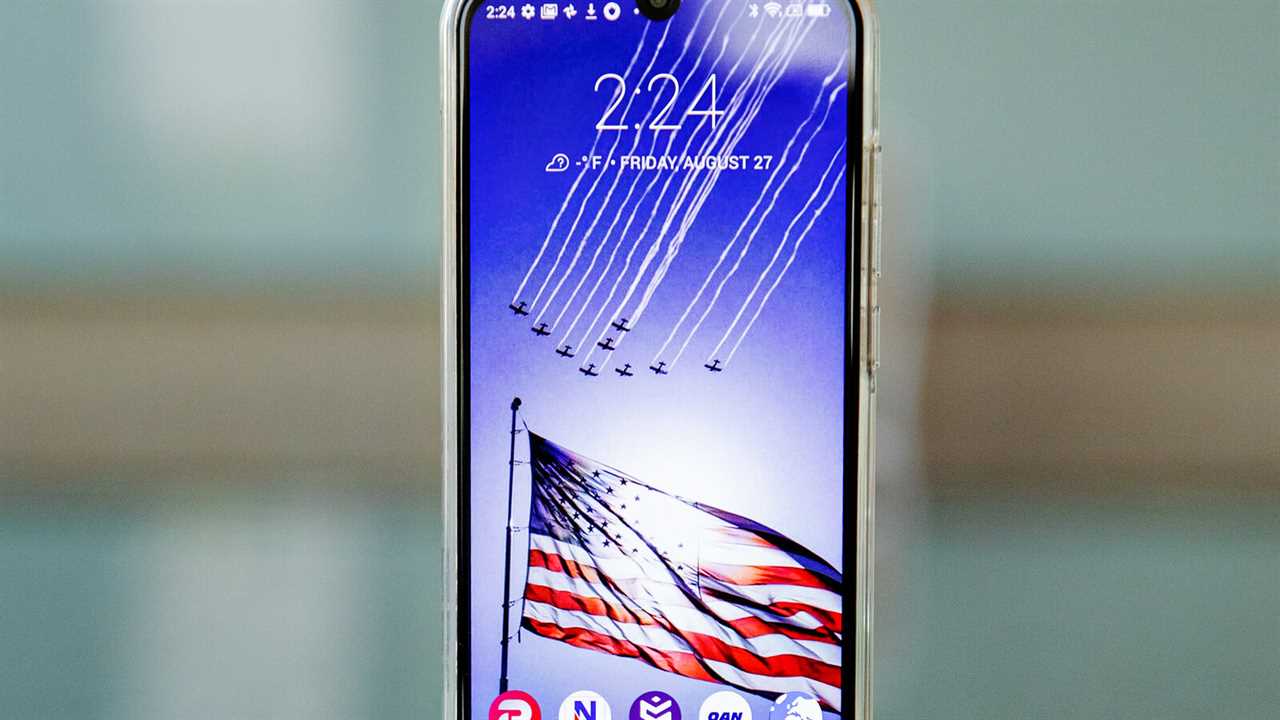
It was a pitch tuned for a politically polarized audience. Erik Finman, a 22-year-old who called himself the world’s youngest Bitcoin millionaire, posted a video on Twitter for a new kind of smartphone that he said would liberate Americans from their “Big Tech overlords.”
His splashy video, posted in July, had stirring music, American flags and references to former Presidents Abraham Lincoln and Donald J. Trump. Conservative pundits hawked Mr. Finman’s Freedom Phone, and his video amassed 1.8 million views. Mr. Finman soon had thousands of orders for the $500 device.
Then came the hard part: Building and delivering the phones. First, he received bad early reviews for a plan to simply put his software on a cheap Chinese phone. And then there was the unglamorous work of shipping phones, hiring customer-service agents, collecting sales taxes and dealing with regulators.
“I feel like practically I was prepared for anything,” he said in a recent interview. “But I guess it’s kind of like how you hope for world peace, in the sense you don’t think it’s going to happen.”
For even the most lavishly funded start-ups, it is hard to compete with tech industry giants that have a death grip on their markets and are valued in the trillions of dollars. Mr. Finman was part of a growing right-wing tech industry taking on the challenge nonetheless, relying more on their conservative customers’ distaste for Silicon Valley than expertise or experience.
There are cloud providers hosting right-wing websites, a so-called free-speech video site competing with YouTube and at least seven conservative social networks trying to compete with Facebook.
Parler, the right-wing social network funded by conservative megadonor Rebekah Mercer, found itself fighting for its life earlier this year after Apple, Google and Amazon pulled their services. Another social media company popular with the far right, Gab, has fought to gain traction without a place on the Apple or Google app stores. And Gettr, a social network created by veterans of the Trump administration, was immediately hacked.
Mr. Finman, who has bleach-blond hair and a brown, chin-strap beard, calls himself an agent of change for both tech and Republican politics. In a freewheeling interview over lamb kebabs at a Turkish restaurant in Manhattan, Mr. Finman weighed in on British politics; quoted both Marcus Aurelius, the Roman emperor, and Karl Lagerfeld, the German fashion designer; and explained why he thought the modern Republican Party was “pathetic.” The party’s leaders complain about Big Tech censorship, he said, but do little about it.
In 2014, New York magazine profiled Mr. Finman as a 16-year-old from outside Coeur d’Alene, Idaho, who had struck it rich when, a few years earlier, he spent a $1,000 gift from his grandmother on Bitcoin.
By 2017, his riches had topped $1 million and he was posting photos online of him posing with YouTube celebrities, getting on and off private jets, and lighting $100 bills on fire. But he tired of the cryptocurrency scene. “I actually hate talking about Bitcoin,” he said. “It’s like ‘Rolling Stones, play the hits.’”
He dove into politics. He said that by the age of 12, he considered himself a libertarian. (It was at a rally for Ron Paul, the former presidential candidate, when someone first told him about Bitcoin.) But his politics shifted when Mr. Trump arrived on the national political stage. “I drank the Kool-Aid in 2016,” he said.
Over the next several years, Mr. Finman said, he became worried about what he viewed as Silicon Valley censoring conservative voices. He also spotted a business opportunity in other Republicans who shared his concerns. So he aimed at the dominance of Apple and Google and tried to create a new right-wing smartphone.
“Politics is the new national pastime, baby,” Mr. Finman said. “Even nonpolitical things like a freaking pillow end up becoming political,” he added, referring to Mike Lindell, the MyPillow founder, who has peddled lies about the 2020 election.
To make a smartphone, however, he had to rely on Google. The company’s Android software already works with millions of apps, and Google makes a free, open version of the software for developers to modify. So Mr. Finman hired engineers to strip it of any sign of Google and load it with apps from conservative social networks and news outlets. Then he uploaded the software on phones he bought from China.
Google and Apple declined to comment.
To unveil the phone, he recorded an infomercial in which he cast the tech companies as enemies of the American way. “Imagine if Mark Zuckerberg banned MLK or Abraham Lincoln,” he said in the video. “The course of history would have been altered forever.”
At the same time, a series of right-wing personalities pitched the phone to their followers. They stood to earn $50 for every customer who used their discount codes.






